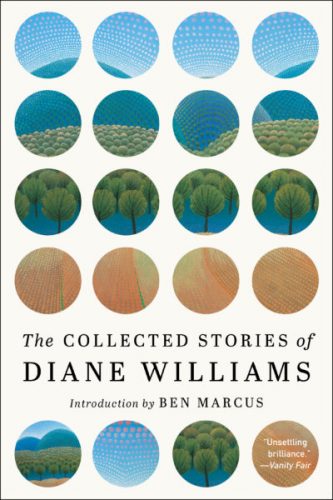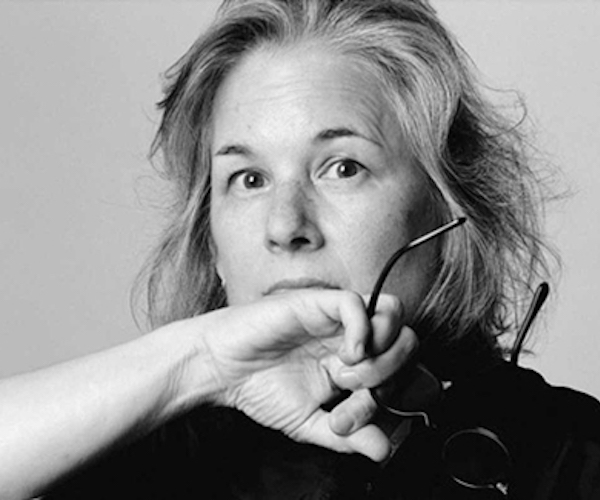Book Review: Diane Williams, Flash Fiction, and the Shrinking Short Story
By Robert Israel
Diane Williams’s brusque vision of a perverse life force mesmerizes.

The Collected Stories of Diane Williams (Soho Press, $28) includes 300 stories and clocks in at almost 800 pages. Literary blurbers on the dust jacket characterize Williams’s work as “energetic,” “brilliant,” “powerful.” Those accolades ring true for many of these yarns, but not all. Some of her stories are among the best I’ve read and taught me a thing or two; others are haughty and inaccessible. There are some stories here that invite re-readings; others are leaden academic exercises that should be passed over.
At her best, Williams strips language bare — “zero to the bone” as Emily Dickinson would put it. She has a penchant for using words as a way to expose her characters’ frayed nerves. Not content with dismembering nervous systems, she resorts to using her pen as a fluoroscope, the better to probe the innards of her characters. Drawing on few words, constructing the sparest of sentences, she fashions hauntingly original prose. Her obsession with the brusque is illustrative of where literature is evolving — indeed where it has already traveled — in our restless, technologically crazed age.
She excels in what is known today as “flash fiction.” It was only a matter of time before fiction absorbed the terse lingo of Twitter tweets, instant messaging, texting, sexting, and social media postings. Languorous sentence construction has pretty well been banished. Still, while she revels in the shock of the new minuscule, Williams’s prose carries on experimental efforts made by earlier American writers who were dedicated to shrinking short stories.
As far back as 1846 ,when Edgar Allan Poe wrote “The Philosophy of Composition,” he insisted that stories must strive for “the unity of impression.” Poe thought readers should be given stories that could be finished “in one sitting.” War correspondent Ernest Hemingway, a century later, cabled dispatches from Europe to newspaper editors in the States. He used this discipline to craft short fiction that read like telegrams, stories that leave out much more than they leave in. “The test of any story is how very good the stuff is that you, not your editors, omit,” Hemingway wrote. In American short story writing, there has always been the pressure to cut to the chase. Now the chase is being cut — shorter and shorter.
Still, stories can’t only be about obeying the edict of leaving out as much as possible. They must capture what American author William Goyen described as “a rhythm, a charged moment, a chain of pulses or beats…the pulse that beats in the material of life.” Without this elemental essence, this primal energy, “the story does not seem to work,” Goyen believed.

Author Diane Williams — She creates fictions that are designed to seduce. Photo: Soho Press.
Williams’s stories start off with a strong hook and refuse to stop yanking on your sensibilities. Here is the opening line of “The Kind You Know Better”: “I had just met them — the brother and sister who had fucked each other to see what it would be like.” Like Dr. Doolittle’s fictional gazelle-unicorn cross, the Pushmi-Pullyu, she creates characters radically at odds with themselves and each other, freaks (or freakish) that inhabit a chaotic world. Reading about incest may be repulsive but, after taking in the first line, she’s got you. You’re in her estranged world, compelled to read further. Her vision of a perverse life force mesmerizes.
Williams has an obsession with sex, but not for prurient reasons. Again, the intention is to create potent yarns, to grab hold, to not let go, to sweep the reader into a sensual tsunami and release them more overwhelmed than when they began. This collection features stories from 1992’s volume Some Sexual Success Stories Plus Other Stories in Which God Might Choose to Appear. What better for cursory literary excursions than the mysteries generating by copulation? Take this representative statement from her story “Orgasms”: “If you care, it was like, like going by her like I was this big fish swallowing a big big fish whole, but because I am bigger, and what of it?” The staccato rhythm of the sentence reflects the twists and turns of a peculiar consciousness.
Williams might grimace (or scoff) at the didactic notion that her stories are meant to teach readers about the habits (even the inner workings) of the figures she draws, quarters, or otherwise dissects. What I learned from her is generally confined to the realm of craft. For me, she’s a writer’s writer. She makes me want to focus on linguistic economy, to choose words that have more impact, to listen to the ebb and flow of paragraphs more keenly.
Williams creates clipped fictions that are designed to seduce. It is worth surrendering to her stories (the good ones), to strap yourself in and let them fly by. The experience is often unsettling, but her mini-roller-coasters offer a hell of a ride.
Robert Israel writes about theater, travel, and the arts, and is a member of Independent Reviewers of New England (IRNE). He can be reached at risrael_97@yahoo.com.

[…] fall into the category of “flash fiction” either, a literary genre that American author Diane Williams excels at, bursts that conform to a designated character count on a computer screen. Neither […]
[…] do not fall into the category of “flash fiction” either, a literary genre that American author Diane Williams excels at, bursts that conform to a designated character count on a computer screen. Neither are […]